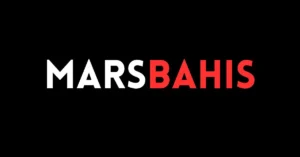Recurbate has emerged as a term that piques the curiosity of many internet users, particularly those navigating the realms of webcam content, online streaming, and digital media archiving. For the searcher wondering what Recurbate is and how it fits into the broader context of internet content sharing, this article provides a comprehensive, neutral, and up-to-date explanation. Within the first few paragraphs, you’ll understand Recurbate’s core function, why it exists, who uses it, and what ethical and legal dimensions it may involve.
While Recurbate may not be a household term, it plays a unique role in digital ecosystems tied to adult live streaming platforms. In this article, we decode its utility, address privacy and legality concerns, and analyze how Recurbate is viewed within evolving digital rights discussions.
What is Recurbate?
Recurbate is an online service that functions as a third-party repository or mirroring platform primarily for adult live webcam performances, such as those hosted on websites like Chaturbate. The service allows users to view previously streamed live webcam content—usually without the original broadcaster’s knowledge or consent. This distinguishes it from the actual live streaming platforms, which generally host only live or paid archived content.
The core idea behind Recurbate is replayability. It caters to an audience that desires to view content outside its scheduled live window, functioning similarly to a DVR (digital video recorder) for web-based adult performances. However, its method of acquiring and redistributing content raises a series of moral and legal questions that are currently being scrutinized in the digital content community.
How Recurbate Works
At its technical core, Recurbate operates by capturing public webcam streams—either by using automated software or crowd-sourced submissions—and then archiving them. This content is later made available to users who visit the Recurbate platform. In some instances, users may be able to request content, bookmark favorite streamers, or even download video footage.
While the specifics of Recurbate’s backend architecture are proprietary and not publicly disclosed, the general assumption is that it uses web scraping tools, content caching servers, and a searchable front-end interface to deliver stored videos.
Table: Key Components of Recurbate Functionality
| Component | Description |
|---|---|
| Content Source | Primarily from adult cam sites like Chaturbate |
| Storage Mechanism | Cloud-based archives of video streams |
| User Features | Playback, search, tagging, optional downloads |
| Monetization | Ad revenue, premium features (inferred) |
| Legal Status | Murky; potentially infringes on copyrights |
The Audience Behind Recurbate
Users who frequent Recurbate generally fall into three categories:
- Passive Viewers – Those who missed a live stream and want to watch it later.
- Archivists – Individuals interested in curating content for personal or cultural interest.
- Data Aggregators – Users involved in trend analysis or digital modeling based on streaming data.
This diverse audience contributes to the platform’s continued usage, despite being ethically controversial.
Recurbate and Privacy Concerns
Privacy is one of the most pressing concerns surrounding Recurbate. Webcam performers often operate under usernames, using pseudonymity to protect their identities. While the original platforms usually provide performers with some degree of control over their content (e.g., the ability to restrict replays or geoblock access), it circumvents these features.
There are serious implications for performers whose content ends up on Recurbate:
- Loss of Control: Performers lose the ability to manage how and where their content appears.
- Identity Exposure: Archived content increases the risk of real-world identification.
- Revenue Loss: Free access on third-party platforms may reduce paid viewership on original streams.
Legality of Recurbate
The legal status of it is ambiguous and jurisdiction-dependent. While the platform itself doesn’t necessarily create content, it redistributes it without formal licensing or the consent of content creators. This is where copyright law enters a gray area.
In most regions, broadcasting or archiving someone else’s content without permission constitutes a breach of copyright law. Some legal experts argue that it may be liable for:
- Copyright Infringement: Distributing video content without a license.
- Violation of Terms of Service: Most cam platforms prohibit third-party redistribution.
- Privacy Law Breaches: Especially in regions with strong data protection laws like the EU (GDPR).
However, due to the international and anonymous nature of both content uploaders and site operators, enforcement is challenging.
Ethical Implications and Performer Safety
It’s existence triggers wider ethical debates about internet anonymity, platform responsibility, and digital rights. Many webcam performers have spoken out against these types of services, citing safety concerns, loss of income, and psychological distress.
Unlike mainstream content creators on platforms like YouTube, adult performers face intensified risks such as:
- Harassment – Content being spread outside safe or moderated environments.
- Doxxing – Personal information being revealed alongside archived videos.
- Stalking – Greater digital exposure potentially leading to real-world encounters.
A growing number of performers are urging platforms and lawmakers to create better enforcement mechanisms and legal recourses to address unauthorized archiving.
Platform Response and Industry Trends
While Recurbate and similar sites operate in the legal shadows, adult streaming platforms are beginning to take stronger action. Measures include:
- Real-time content watermarking – To trace unauthorized uploads.
- Stronger DMCA teams – Working with law firms to remove infringing content.
- Legal pursuits – Filing suits against third-party archiving sites.
Furthermore, user awareness is improving. Platforms now educate performers on using tools such as VPNs, region restrictions, and enhanced account privacy.
The Shift Toward Ethical Archiving
In response to it phenomenon, some digital archivists have proposed ethical frameworks for preserving adult content. These frameworks emphasize:
- Informed Consent: Archiving only with permission.
- Compensation: Sharing revenue with content creators.
- Privacy by Design: Building systems that protect performer identity.
These approaches aim to balance cultural documentation with creator rights—a debate likely to expand in the coming years.
The Future of Third-Party Archiving Platforms
As AI-generated content grows and regulatory frameworks like the EU’s Digital Services Act become enforceable, sites like Recurbate may face tighter scrutiny. It’s likely that:
- Platform De-indexing: Search engines may remove such platforms from results.
- ISP Blocking: Governments may direct ISPs to block access.
- Criminal Investigations: Especially in countries with aggressive cybercrime enforcement.
Yet, the decentralized nature of the web and the rise of decentralized hosting models (e.g., IPFS) complicate enforcement.
Performer Advocacy and Online Campaigns
In the face of growing concerns, performer-led movements like #MyContentMyChoice have emerged, promoting awareness and legislative change. Advocacy organizations now provide legal templates, educational materials, and support groups to help performers take down their content from unauthorized platforms.
In some instances, successful takedown campaigns have not only removed content but also led to court orders and sanctions against site operators.
Final Thoughts: Recurbate in a Shifting Internet Culture
Recurbate sits at the intersection of digital freedom, platform responsibility, and user ethics. For users, it’s a window into missed moments; for performers, it’s a risk to autonomy and income. As internet laws mature and cultural conversations around privacy and consent continue, the existence of platforms like Recurbate will remain controversial.
More importantly, the discussion about Recurbate isn’t just about one site—it’s about how we handle digital ownership, ethical archiving, and individual rights in an increasingly connected world.
ALSO READ: adsy.pw/hb3: The Unseen Role of Redirect Links in Modern Web Ecosystems
Frequently Asked Questions (FAQs)
1. Is Recurbate legal?
Recurbate operates in a legal gray area. While it does not host illegal content per se, it redistributes copyrighted material without the creator’s permission, which may violate copyright and privacy laws depending on the jurisdiction.
2. Can webcam performers stop their content from appearing on Recurbate?
Some performers can file DMCA takedown notices or work with platform moderators and legal teams. However, results vary, and success often depends on legal representation and the cooperation of hosting providers.
3. Is Recurbate affiliated with Chaturbate or similar platforms?
No, Recurbate is not officially affiliated with any webcam streaming platform. It operates as a third-party service without formal partnerships or licensing agreements with the original content hosts.
4. Can users get into legal trouble for watching content on Recurbate?
Simply viewing content is unlikely to lead to legal consequences, but downloading or distributing content may put users at risk, especially if the material is deemed to infringe copyright laws.
5. What are ethical alternatives to Recurbate?
Ethical alternatives include subscribing directly to performers on platforms that support them financially and legally. Some performers offer paid replays, premium memberships, or custom content that respect their creative rights and boundaries.









